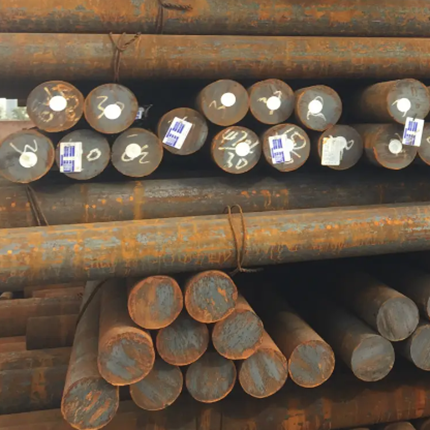
21CrMoV5-7 is a low-alloy steel grade commonly used in the production of round bars for various industrial applications. It is characterized by its high strength, toughness, and good hardenability, making it suitable for applications where high strength and resistance to wear and fatigue are required.
These round bars are often used in the manufacturing of components for machinery, automotive parts, pressure vessels, and power plants, among other applications.
When selecting round bars made from 21CrMoV5-7 alloy steel, it's essential to ensure they meet the required specifications and standards for your specific application to ensure optimal performance and durability.
Chemical Composition: The chemical composition of 21CrMoV5-7 alloy steel typically includes:
| Property | Minimum Value | Maximum Value |
|---|---|---|
| Carbon (C) | 0.17% | 0.25% |
| Silicon (Si) | 0.15% | 0.40% |
| Manganese (Mn) | 0.40% | 0.70% |
| Phosphorus (P) | - | 0.035% |
| Sulfur (S) | - | 0.035% |
| Chromium (Cr) | 1.00% | 1.30% |
| Molybdenum (Mo) | 0.25% | 0.35% |
| Vanadium (V) | 0.15% | 0.30% |
Mechanical Properties:
| Property | Minimum Value | Maximum Value |
|---|---|---|
| Tensile Strength | 700 MPa | 900 MPa |
| Yield Strength | 500 MPa | 600 MPa |
| Elongation | 15% | 18% |
| Reduction of Area | 45% | 55% |
| Hardness (HB) | 200 HB | 270 HB |
Physical Properties:
Density: The density of 21CrMoV5-7 alloy steel is approximately 7.85 g/cm³. This value may vary slightly depending on the exact composition and manufacturing process.
Melting Point: The melting point of 21CrMoV5-7 alloy steel is typically around 1420-1460°C (2588-2660°F). This temperature range represents the point at which the solid metal transforms into a liquid state.
Thermal Conductivity: The thermal conductivity of 21CrMoV5-7 alloy steel is approximately 42-51 W/(m·K). This property indicates the material's ability to conduct heat and is important for applications involving heat transfer.
Specific Heat Capacity: The specific heat capacity of 21CrMoV5-7 alloy steel is typically around 460-470 J/(kg·K). This property denotes the amount of heat required to raise the temperature of a unit mass of the material by one degree Celsius.
Manufacturing Standards: These round bars may be produced according to various international standards such as:
Surface Finish: Round bars may come with a variety of surface finishes, including as-rolled, rough turned, peeled, or polished, depending on the desired application and customer requirements.
Applications: These round bars are commonly used in the manufacturing of components such as gears, shafts, axles, bolts, and other machine parts subjected to high stress and wear conditions in industries like automotive, aerospace, machinery manufacturing, and power generation.